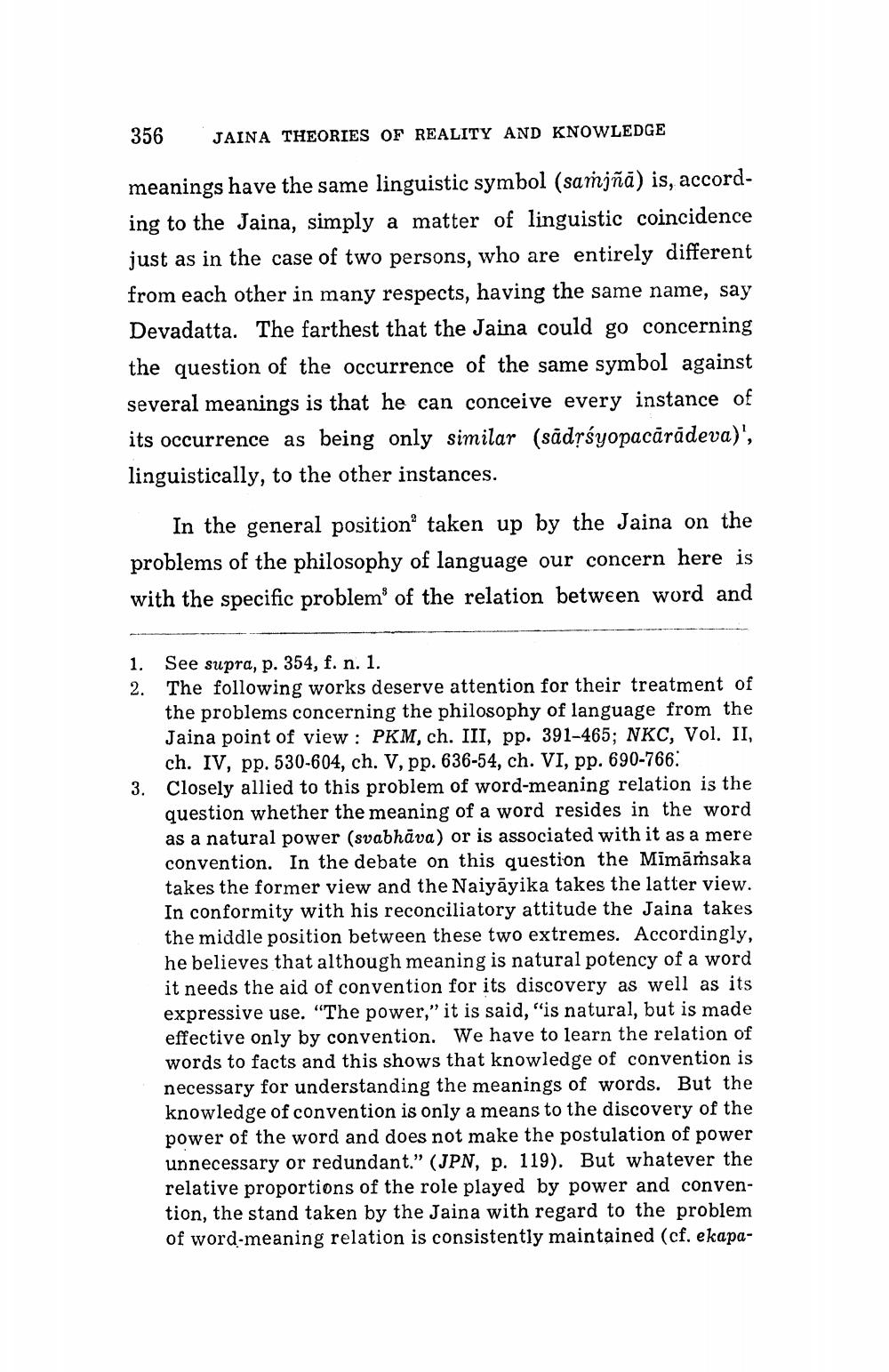________________
356
JAINA THEORIES OF REALITY AND KNOWLEDGE
meanings have the same linguistic symbol (samjñā) is, according to the Jaina, simply a matter of linguistic coincidence just as in the case of two persons, who are entirely different from each other in many respects, having the same name, say Devadatta. The farthest that the Jaina could go concerning the question of the occurrence of the same symbol against several meanings is that he can conceive every instance of its occurrence as being only similar (sadṛśyopacārādeva)', linguistically, to the other instances.
In the general position taken up by the Jaina on the problems of the philosophy of language our concern here is with the specific problems of the relation between word and
1.
See supra, p. 354, f. n. 1.
2. The following works deserve attention for their treatment of the problems concerning the philosophy of language from the Jaina point of view: PKM, ch. III, pp. 391-465; NKC, Vol. II, ch. IV, pp. 530-604, ch. V, pp. 636-54, ch. VI, pp. 690-766:
3. Closely allied to this problem of word-meaning relation is the question whether the meaning of a word resides in the word as a natural power (svabhava) or is associated with it as a mere convention. In the debate on this question the Mimāṁsaka takes the former view and the Naiyayika takes the latter view. In conformity with his reconciliatory attitude the Jaina takes the middle position between these two extremes. Accordingly, he believes that although meaning is natural potency of a word it needs the aid of convention for its discovery as well as its expressive use. "The power," it is said, "is natural, but is made effective only by convention. We have to learn the relation of words to facts and this shows that knowledge of convention is necessary for understanding the meanings of words. But the knowledge of convention is only a means to the discovery of the power of the word and does not make the postulation of power unnecessary or redundant." (JPN, p. 119). But whatever the relative proportions of the role played by power and convention, the stand taken by the Jaina with regard to the problem of word-meaning relation is consistently maintained (cf. ekapa




